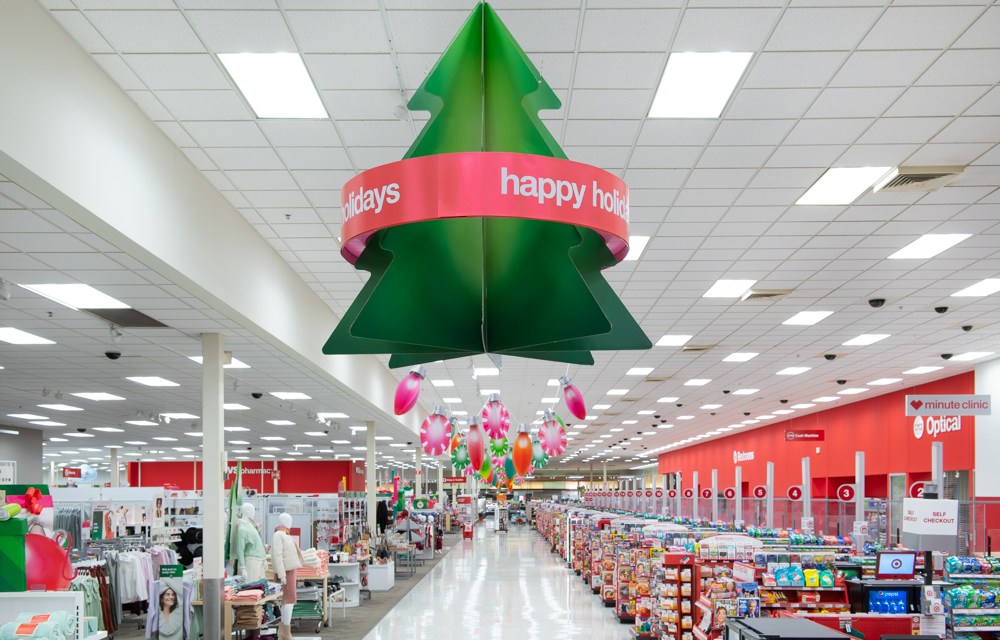Target’s bottom line slips 52% as shoppers seek more promotions

Target’s profits took a hit as shoppers steer clear of full-priced items.
The retailer’s net income declined by around 52% in the third quarter to $712 million from $1.49 billion around the same time last year. Its operating income also declined by about 49% year-over-year in the third quarter.
With inflation continually impacting the cost of goods, consumers’ budgets are stretched thin. As a result, experts say shoppers are holding off buying discretionary items and are looking for cheaper options. This consumer trend, in addition to other challenges like inventory constraints and rising operational costs, negatively impacted Target’s third-quarter results.
“With high rates of inflation [continuing] to erode their purchasing power, many consumers this year have relied on borrowing or dipping into their savings to manage their weekly budget,” Target CEO Brian Cornell said during a call with investors and analysts. “But for many consumers, those options are starting to run out. As a result, our guests are exhibiting increasing price sensitivity, becoming more focused on and responsive to promotions and we’re hesitant to purchase at full price.”
In short: consumers are looking for more value. On Tuesday, Walmart emphasized the benefits of its value-based offerings, one of which was transactions from wealthier shoppers who might be looking to lower their grocery bills. Walmart’s third-quarter comp sales in the U.S. grew 8.2%, while comp sales at Target were up 2.7%.
Ad position: web_incontent_pos1
Sales for discretionary categories at Target, while already soft, had softened even more during the quarter’s last few weeks. Executives noted that shoppers “responded increasingly to promotions” when buying seasonal products for back-to-school, college and Halloween. Total revenue for the quarter rose just 3.4% year-over-year to $26.5 billion.
However, the beauty category had been Target’s bright spot this quarter, with sales growth in the mid-teens. Ulta Beauty at Target also tripled its sales volume compared to last year.
Sean Turner, CTO and co-founder of retail tech solutions firm Swiftly, said that discretionary categories are some of the first areas consumers cut back on when financial challenges come up. He added that this trend could push consumers to turn to other value-based retailers for their holiday shopping. Target highlighted some strategic merchandising decisions during the call that would put them in a better position when the holiday season rolls in, such as its toy assortment from FAO Schwarz.
Ad position: web_incontent_pos2
“Shoppers are still planning on celebrating the holidays. They’re still planning on buying gifts this holiday season,” Turner said. “But they’re definitely being a lot more cost-conscious in the gifts that they’re buying.”
Much like other big-box retailers, Target is also in the process of alleviating the excess inventory problems that are forcing it to roll out more promotions at the expense of its bottom line. Target has $17.1 billion of inventory in the quarter, compared to around $15 billion around the same time last year. Executives noted that the company is taking a more cautious approach to discretionary categories as it aligns its inventory with the level of demand.
Demand levels this holiday season remain relatively unpredictable, which makes inventory planning a potential challenge for players in the industry. Walmart, for example, said in its earnings call that it expects spending to slow in the fourth quarter. Target said it is “taking a prudent approach to our inventory planning and sales expectations” for the next quarter.
Additionally, organized retail crime took a $400 million bite out of Target’s profits this year. Charles Lewis Sizemore, chief investment officer of Sizemore Capital, said that this means Target will have to invest more in its security, potentially leading to a more labor costs.
“It’s hard to find people or part-time workers,” Sizemore said. “If you start running on a skeleton crew, you’re not going to notice shoplifters as much.”
Due to existing trends and its third-quarter results, Target said it expects comp sales to have a low single digit decline and an operating margin around 3% in the fourth quarter. Target previously said in August that it expects full-year sales to rise in the low- to mid-single-digit percentage range.
“They’re just accepting reality,” Sizemore said about Target’s outlook. “They’ve been here before, and they see the handwriting on the wall.”
